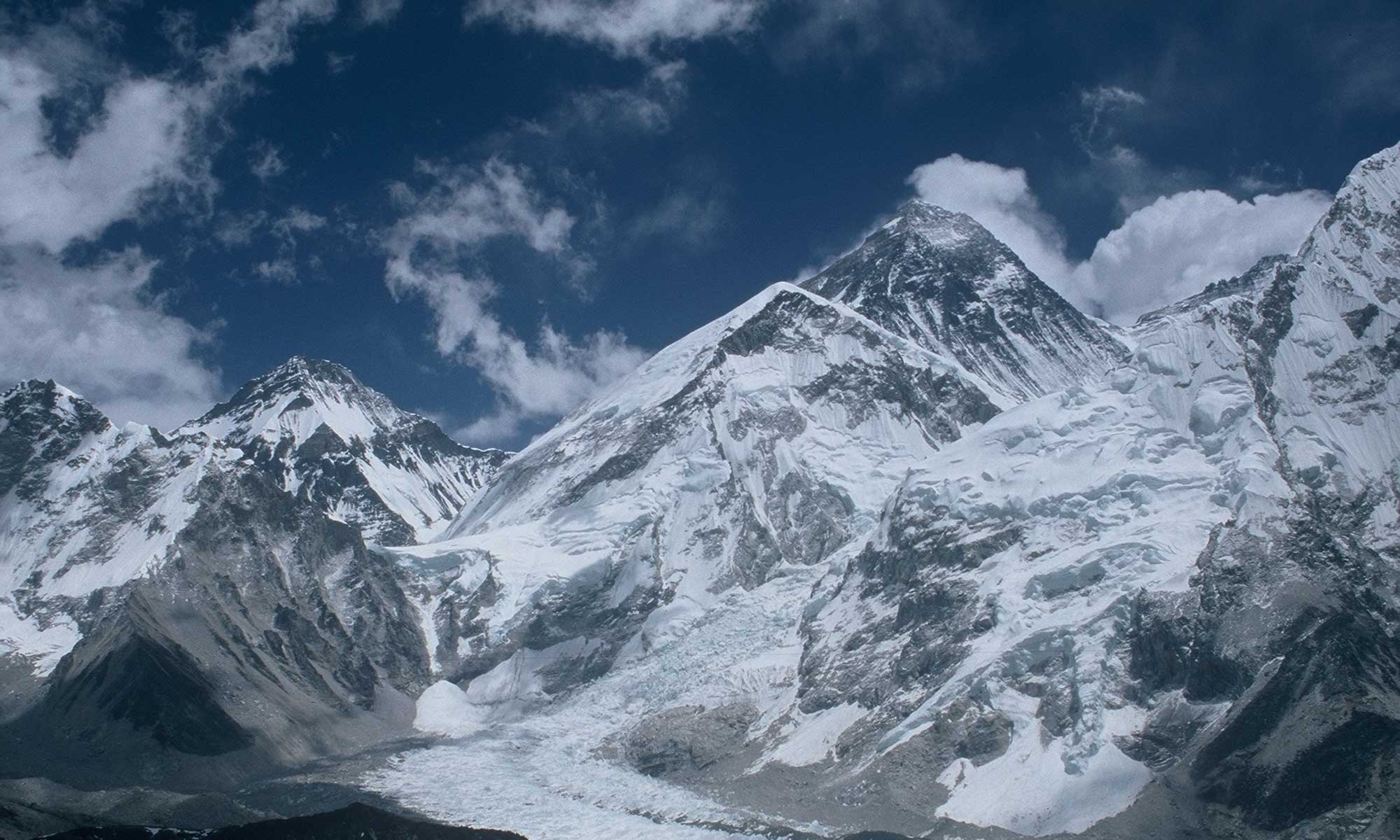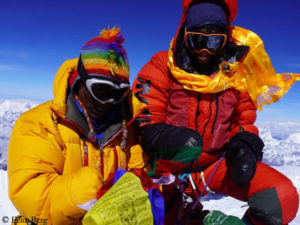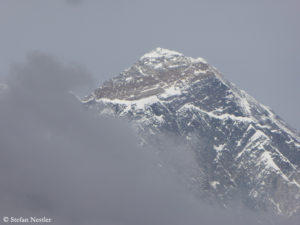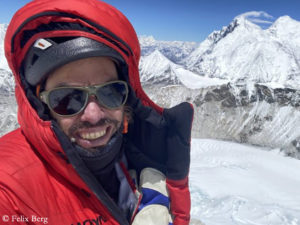“It felt a bit like an apocalypse movie,” says Felix Berg, describing the moment when he and his client Robert Westreicher landed by helicopter at Everest Base Camp on 29 May. “The whole time, at least three helicopters were permanently landing and then taking off again. It was quite special: there were two of us going in, while what felt like hundreds of people were setting off, not to say fleeing.”
The German expedition leader from the operator Summit Climb came to Mount Everest only when this spring season, which was under the shadow of a corona outbreak, was actually already as good as over.
Above 8,400 meters with mask
Fully acclimatized from their failed attempt without bottled oxygen on the eight-thousander Makalu, Felix and Robert, accompanied by Renji and Tashi Dawa Sherpa, set out on 30 May for a last-minute summit attempt. That day they climbed from base camp directly to Camp 3 at 7,200 meters, and the next day to the South Col at nearly 8,000 meters. “The storm had destroyed many tents there, and Camp 4 was already looking pretty grim,” Felix says.
Westreicher used bottled oxygen from camp 3, Berg resorted to a breathing mask just below the so-called “Balcony” at about 8,400 meters. All four team members reached the summit at 8,849 meters on the morning of 1 June. For Berg it was the second time after 2004, when he had climbed as a 23-year-old, also with bottled oxygen, from the Tibetan north side of the mountain to the roof of the world.
Too windy, too tired
Actually, the 40-year-old had wanted to ascend without breathing mask this time. “As time went on, I got cold, the wind was blowing at 40 to 50 kilometers per hour, and not just in gusts. It wasn’t a great day to go without mask,” Felix says. “But who knows, maybe someone with a little more determination would have made it. I was a little tired from the previous days after all.” According to the information I have, all of the more than 400 people who reached the summit of Everest in spring 2021 used bottled oxygen.
Hygienically difficult circumstances
It’s been a “very special season” on Mount Everest, Felix says – partly because of corona, and partly because of the weather. “Some teams lost their Sherpas because of COVID. But mostly it’s been a bad season weather-wise because of the two cyclones.”
He can’t say much about the corona situation on Everest, as he was only there for five days, Berg explains: “When we arrived, there was only us and David (Göttler) and Kilian (Jornet) sitting in the huge Dome tent, where probably 30 people had squeezed in before. But it’s clear that it’s more problematic when around 1,000 people crowd into the base camp under hygienically difficult conditions.”
Felix Berg says that he and his team did not feel much of the dramatic worsening of the corona situation in Nepal at the end of April, beginning of May in the mountains. On the six-thousander Mera Peak and on the seven-thousander Baruntse, where his team acclimatized, there were only a few climbers, as well as on Makalu: “There we were maybe 40 people in total. Makalu is likely to have remained COVID-free.”
In Kathmandu, they were presented with a very different picture: “When we returned, there was a complete lockdown, the likes of which we have never seen at home,” says Felix. “Everything closed, police and military on the streets, you couldn’t get anywhere without a permit. That was pretty special.” With a charter flight, his team was finally able to leave the country.
“Without money, no food on the table”
Felix Berg considers expeditions in times of the corona pandemic in principle responsible, “if you put on a good mask, watch your hands and stick to the rules”. Problems only arise, he says, when people behave in an undisciplined manner. “I’m afraid there’s nothing you can do about that. Personal behavior is the basic problem in travel and expeditions.” Felix points out that people in the Himalayas depend on income from mountain tourism: “In Nepal, no one just prints money and distributes it to the people. If the money is missing, then there is no food on the table.”



